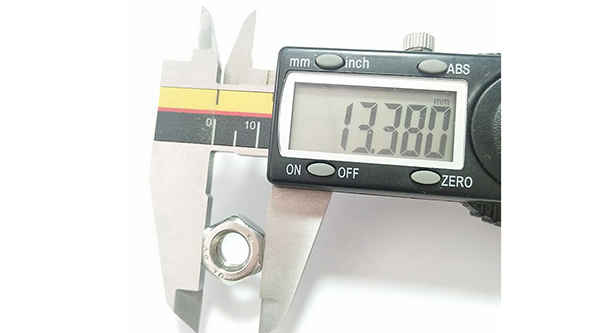What is the tolerance range of precision screws?
What is the tolerance range of precision screws?
Service Hotline
+86760-8787 8587We have more than ten years of experience in the production of screw industry, the main products are: carbon steel surface galvanized screws, horn ingot nuts, quenched high hardness, multi-specification nuts, hexagonal screws, hexagonal flat nuts, low nut, black countersunk head screws , All-aluminum rivets, black flat head bolts, short head thin head socket head cap screws, pocket cross bolts, 304 small flat washers, narrow edge flat washers, GB860 saddle elastic washers, knurled aluminum rivets and other fasteners, due to The materials and specifications of the products are different, and the prices are also different. Please contact us if you need it.


On the other hand, especially in the aerospace field, the requirements for the sealing effect of screws are extremely strict, and the traditional screws are directly tightened when screwed into the workpiece or equipment, and the sealing effect is determined by the tightness, but due to the machining error of the workpiece or equipment The direct butt seal between the seals is difficult to achieve.

Although there are many types of self-tapping screws, they all have the following common points: (1) They are generally made of carburized steel (accounting for 99% of the total output). Also available in stainless steel or non-ferrous metals. (2) The product must be heat treated. Carbon steel self-tapping screws must be carburized, and stainless steel self-tapping screws must be solution hardened. In order to make the self-tapping screw meet the mechanical properties and performance required by the standard. (3) The product has high surface hardness and good core toughness. That is, inner softness and outer rigidity. This is a major feature of the performance requirements of self-tapping screws. If the surface hardness is low, it cannot be screwed into the matrix; if the toughness of the core is poor, it will break as soon as it is screwed, and it cannot be used. Therefore, inner soft outer steel is a very important requirement for self-tapping screws to meet the performance requirements. (4) The surface of the product needs surface protection treatment, generally electroplating treatment. The surface of some products must be treated with phosphate (phosphating), such as wallboard self-tapping screws are mostly phosphated. (5) Produced by cold heading process. It is recommended to use high-speed cold heading machine and high-speed thread rolling machine or high-speed planetary thread rolling machine for production. The emphasis here is on high speed to ensure product quality. Only self-tapping screws produced by high-speed machines have well-formed heads and high-quality threads.


The existing spring pads are generally composed of longitudinal support springs, transverse connection springs, support springs, frames and frame clips. (Commonly known as string spring) is a slender and constant warp spring, used to connect the longitudinal support spring. The support spring is located at the edge of the spring pad to increase the shear resistance of the spring pad and the support strength of the frame. The surrounding frame connects the spring to the spring. up, fixed. The existing treatment method is to first heat-process the longitudinal support spring and the support spring made of 70# steel wire through the winding spring in a chemical solution, arrange them, and fix and connect them with a string spring, a frame and a clamping piece. Because the string spring and the frame have not been chemically heat treated, there is a large internal stress. Therefore, this treatment method has two disadvantages. One is that the processing efficiency of the heat treatment support spring is low. Larger, the spring is easily deformed and the service life is affected. In addition, the chemical solution after heat treatment is easy to cause environmental pollution

In the existing joint replacement, self-tapping screws are mostly used, and their triangular thread structure has a certain self-locking ability. After a long period of service, it is prone to loosening. The surrounding bone may not be tight enough after implantation, resulting in a sharp decline in its self-locking ability, and there may be a risk of regression, causing certain damage to the human body.

The above content is uploaded by Yueluo or the Internet. If there is any copyright issue, please contact [email protected].

What is the tolerance range of precision screws?

How to choose the right stainless steel screw manufacturer?

Why is there an R angle under the head of the hexagon head s...

We have more than ten years of production experience in the ...

We have more than ten years of production experience in the ...

We have more than ten years of production experience in the ...

We have more than ten years of experience in the production ...